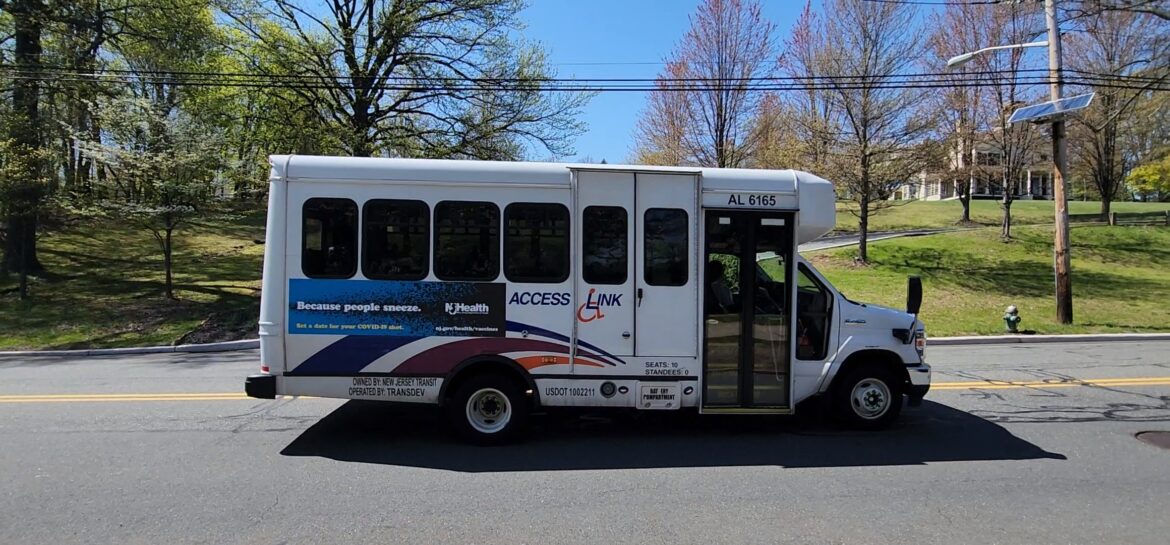It is cold, rainy and the bus is nowhere to be found. Minutes turn to hours, the schedule says one thing and your phone another. This is an all too common reality for people who ride Access Link.
Access Link, NJ Transit’s paratransit service, was designed for those who are unable to use traditional public transportation. Access Link is supposed to offer convenient transportation that complies with the Americans with Disabilities Act (ADA) regardless of the person’s disability.
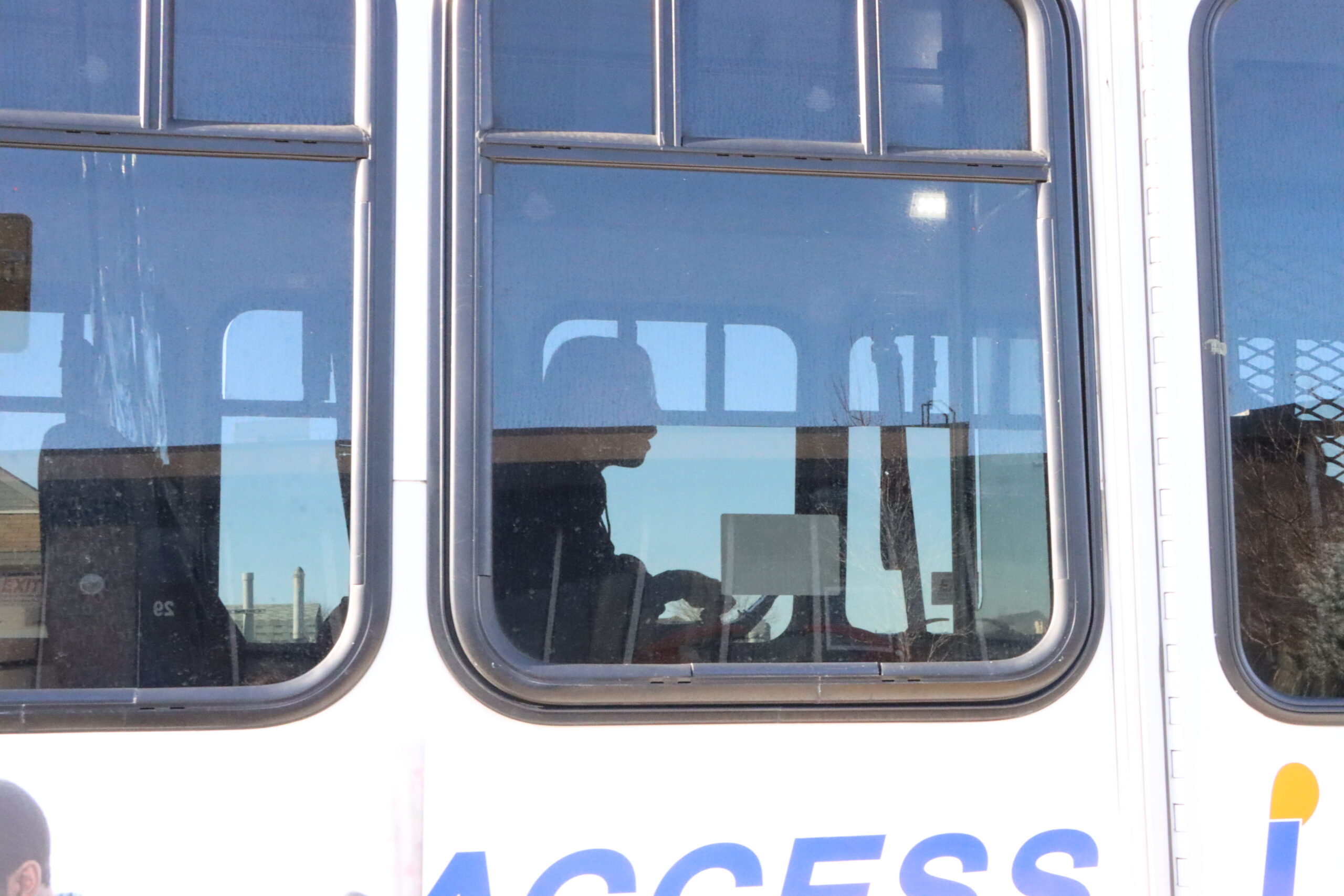
Jacob Hackett waits to be buckled in on the Access Link bus. Ryan Mosca | The Montclarion Photo credit: Ryan Mosca
However, a recent lawsuit from the United States Attorney’s Office found that Access Link violated ADA compliance. Despite new programs and hiring efforts promised by NJ Transit, many riders have not seen much change.
Erick Rivera Sanchez, an Access Link user, began using the service to get to college from his house in Red Bank. Sanchez uses a wheelchair, and Access Link is his main method of transportation.
“I kept being late to class,” Sanchez explained. “The bus would say ‘picking you up at 6:30,’ but then it’d show up at 7. It was affecting my grade for that class… I ended up having to wake up at 5:30 for my 9am class.”
Listen to Erick’s full interview here.
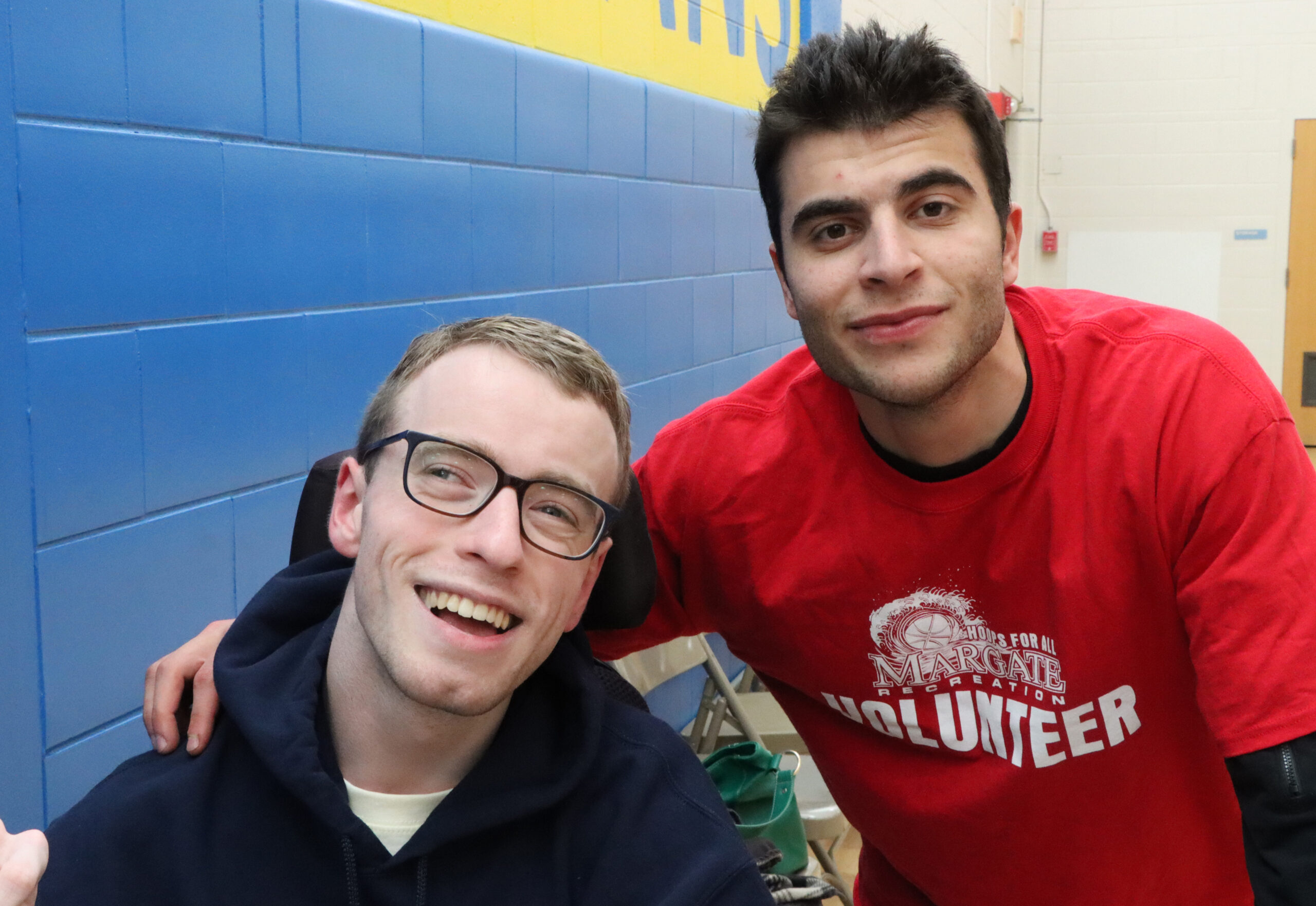
Dominic Picinich and Jacob Hackett pose for a photo at the Hoops for All basketball game at the Eugene A. Tighe School in Margate, NJ. Ryan Mosca | The Montclarion Photo credit: Ryan Mosca
NJ Transit’s Access Link was born out of the necessity to bridge the growing transportation gap for people with disabilities. The program was created alongside many others after the landmark Americans with Disabilities Act of 1990.
Access Link began operation in 1993 as a lifeline for those unable to utilize traditional public transportation services due to mobility constraints. Its inception marked a significant stride towards equal access to accessible transportation.
During its early stages of establishment, Access Link was often recognized for its commitment to inclusivity and reliability. The service was modeled after New York’s Access-a-Ride and doubled down by hiring senior leaders from New York. Its fleet of specialized vehicles grew along with its number of riders, each equipped with accessibility features.
Throughout the late 90s and early 2000s, its expansion into various regions across New Jersey further cemented its status as an indispensable service, connecting individuals with disabilities to essential destinations within their communities.
On top of its expansion, NJ Transit was also hit with a lot of budget constraints during the financial crisis of the late 2000s. The state cut their funding by 20% at the time.
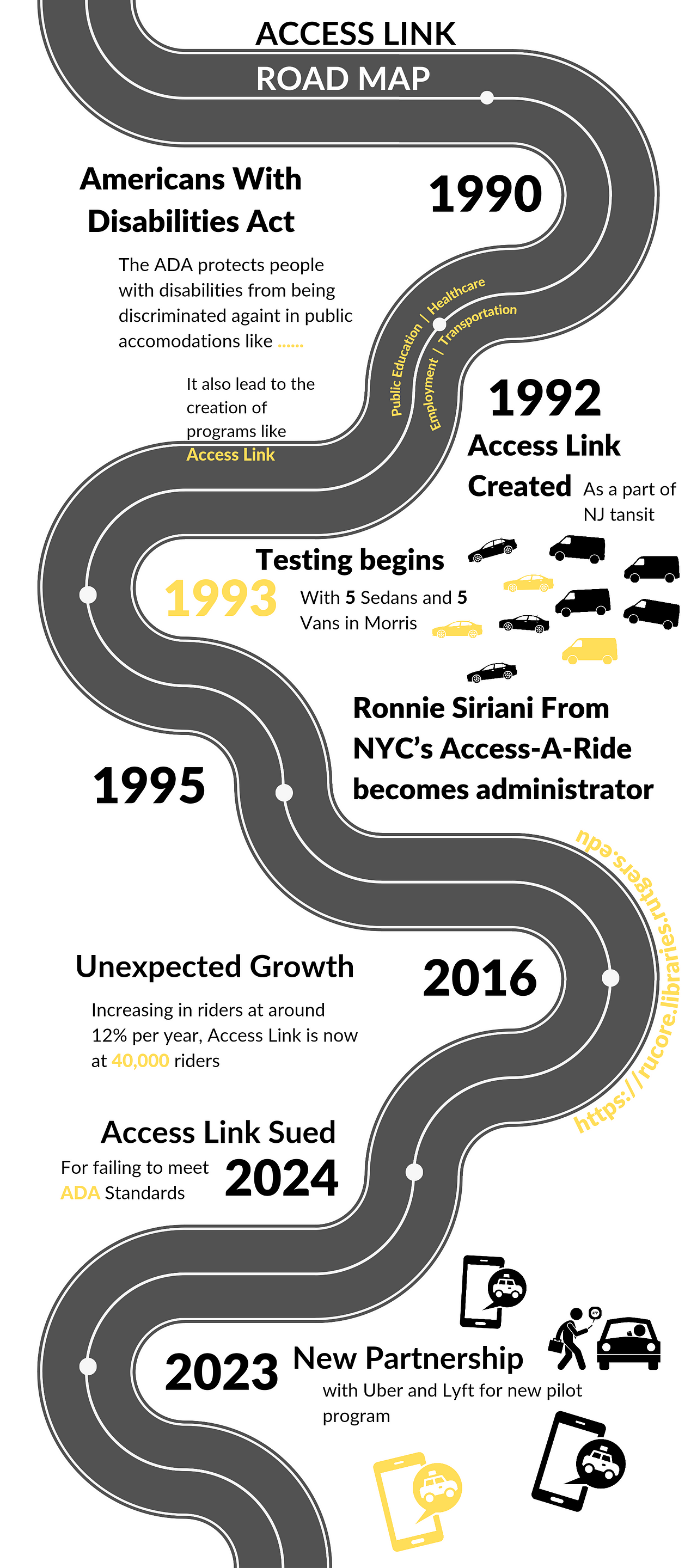
Access Link infographic showing the changes in the company over time. Henry Tighe | The Montclarion Photo credit: Henry Tighe
James Weinstein, the Executive Director for NJ Transit, said in 2010 that getting more money from the government wasn’t an option either.
“In a different time, you could probably turn to the state,” Weinstein said. “But the state has an $11 billion deficit. We don’t have a lot of options,”
NJ Transit had no choice but to turn to their riders to make up the deficit. This resulted in a price hike across the board that has continued to balloon to this day.
The budget cuts also forced many drivers out of a job, increasing the workload of the existing drivers and therefore causing longer rides.
These problems continued beyond the 2010s and culminated in 2022. The U.S. Attorney’s office sued Access Link for not meeting ADA requirements. On top of long rides and inconsistent pick up times, many riders cited a lack of safety.
Wheelchair user Jacob Hackett also noticed some issues. Drivers often failed to buckle him – and others – in, and that he had to remind them to secure his chair and how to do so.
“You have drivers that aren’t well equipped,” Hackett said. “Some of them don’t know how to tie down chairs. They don’t know the areas. The list could go on and on.”
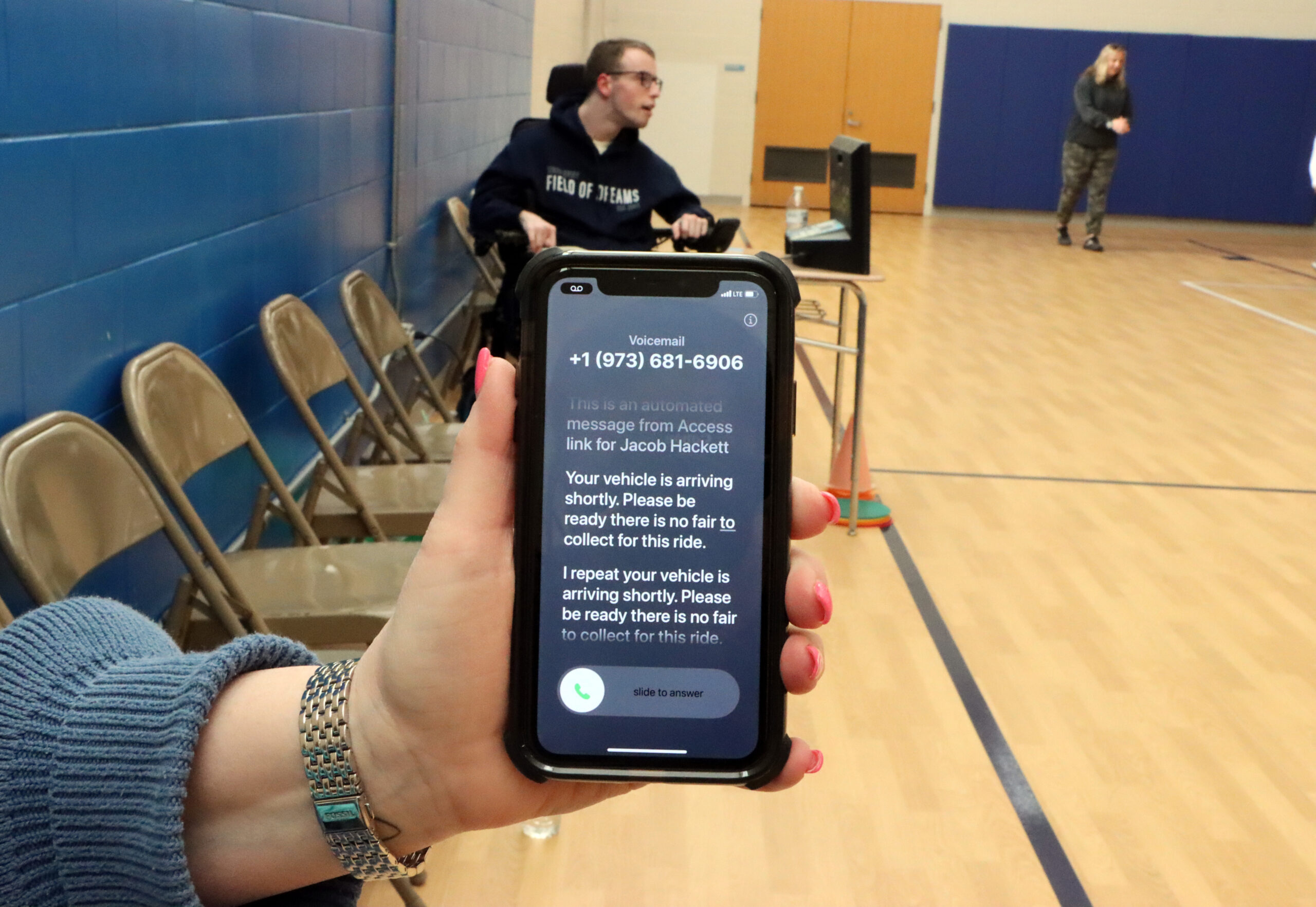
Heidi Hackett shows a voicemail alerting her son Jacob that his access link bus is on the way. Ryan Mosca | The Montclarion Photo credit: Ryan Mosca
The lawsuit did not make Access Link to surrender money to address these problems, but did force the service to meet ADA requirements. In response, Access Link created a new rideshare pilot program in partnership with Uber and Lyft called the Rider’s Choice Program.
In a press release, Access Link said the program “Offers you the option to have your scheduled Access Link rides handled by one of our Transportation Network Company (TNC) partners like Uber or Lyft.”
The new program sounds promising to Access Link rider Erick Sanchez, who said he would be opting in for next semester. However, he remains wary of the service due to his past experiences with NJ Transit.
“[The program sounds like an improvement,” Sanchez commented. “[But] I feel like [NJ Transit has] to do more.
The Rider’s Choice Program Pilot is launching throughout the state over the next few months.

